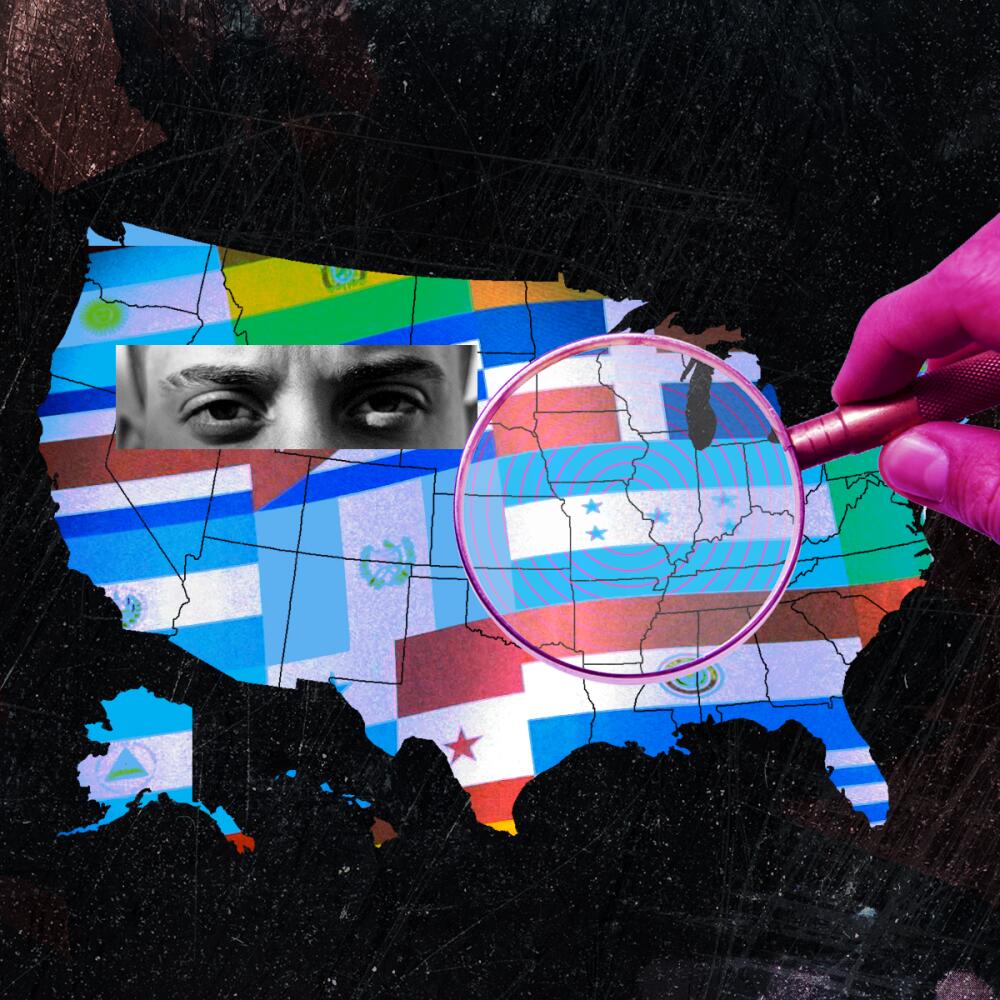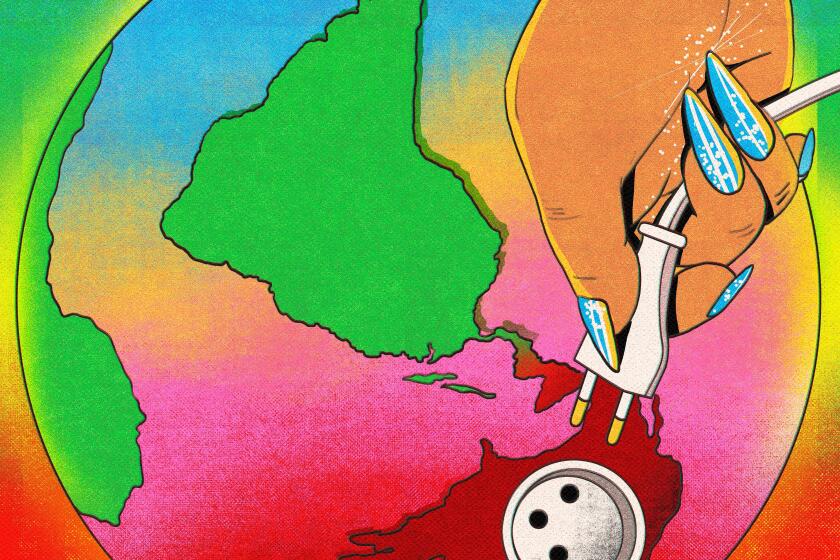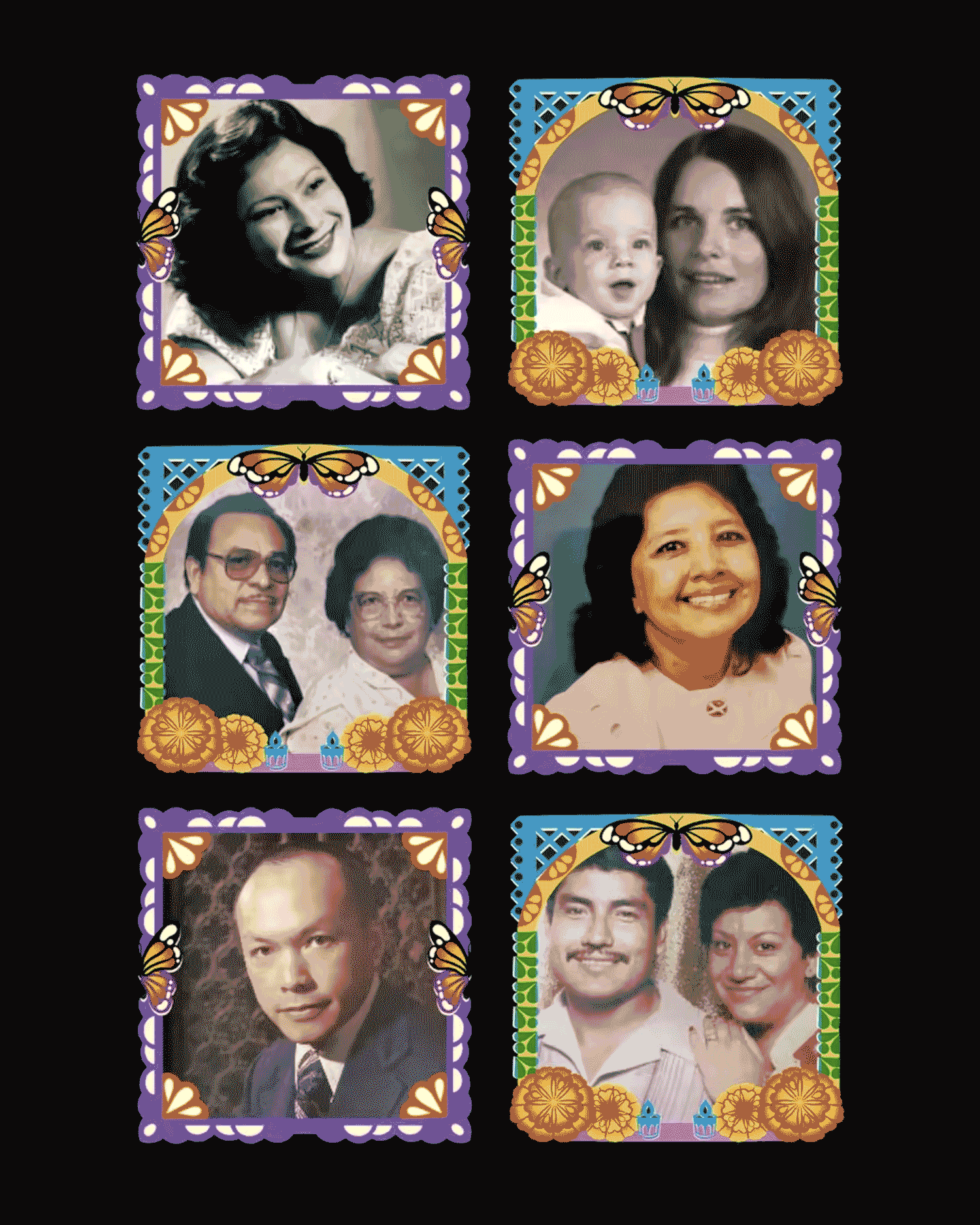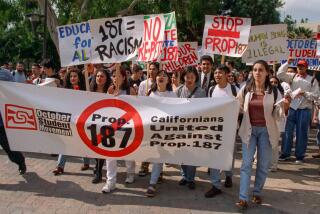
The Latino population has been depicted as a monolith, but a new data hub by the UCLA Latino Policy and Politics Institute is looking to provide a more accurate and nuanced understanding of the diverse Latino population within the United States.
Understanding the Latino demographic as a mosaic, not a monolith, is at the heart of UCLA’s new Latino Data Hub.
The goal is “to change the narrative about Latinos by allowing all of us, through data, to embrace the complexity of Latino communities in the United States that are oftentimes treated as a monolith,” said Rodrigo Dominguez-Villegas, director of research at the Latino Policy and Politics Institute.
Many first-generation Latinos in the U.S. are searching for ways to connect with their roots. For these students, the answer lies in folklórico.
The free bilingual interface launched in October with the goal of transforming the way Latino data from the U.S. Census Bureau is compiled, visualized and, ultimately, understood by the public.
“We do all the cleaning, all the coding, all the data curation that’s needed, and we present it in a very clean and easy interface,” said Dominguez-Villegas.
Compared with the official U.S. Census Bureau interface, the Latino Data Hub provides a one-stop site that is easy to use and beneficial to anyone who struggles with data visualization and analysis.
Users can create their own custom graphs and tables using 130 different indicators across racial and ethnic groups.
‘Fools Rush In’ has its issues, but Perry and Hayek’s chemistry gave us a charming tale of intercultural dating
The Matthew Perry-Salma Hayek rom-com withstood the test of time and is still a great lesson in intercultural relationships.
By pointing and selecting different identifiers such as gender, citizenship or country of origin, users can answer an array of research questions about Latinos.
For example, if someone is researching the number of uninsured Latinos, they can select “uninsured” as an indicator. The site will automatically generate a graph, map and tables of Latinos without insurance.
Users can also apply additional filters to gather specific insights. For example, the number of uninsured Latinos can be broken down by U.S.-born, naturalized and noncitizen identifiers. The data will indicate that more than half of noncitizen Central Americans are uninsured, an insight that health organizations might use to craft future interventions and social programming.
A staggering 81% of Latinos in the U.S. consider addressing climate change to be a priority compared to 61% of non-Latinos, according to Pew Research.
To save users time, the Latino Data Hub also highlights 10 issue areas — among them is health insurance — which users can tweak to answer specific research questions.
The UCLA Latino Policy and Politics Institute has also published a series of reports that dispel myths about the Latino population using visuals from the Latino Data Hub.
“[Latino] characteristics have changed in the past 20 years,” Dominguez-Villegas said.
Calls for the Latino Data Hub were ongoing at the UCLA Latino Policy and Politics Institute for a number of years, Dominguez-Villegas said. “There was a big gap in the ways in which Latinos are represented in aggregated data platforms,” he said.
The rise in Latino deaths during the COVID-19 pandemic exacerbated the need for a better grasp of data.
It’s easy to be protective over Día De Muertos, since it means so much to many people. But gatekeeping isn’t it.
“It was very obvious that our elected officials were not equipped with the data that they needed to understand how the pandemic was going to impact Latino communities,” Dominguez-Villegas said.
According to 2023 CDC data, Latinos made up 15.1% of U.S. COVID-19 deaths. When weighted for population distribution, the death rate for Latinos rose to 33.3%.
“That was the biggest trigger that made us say ‘this cannot happen ever again,’” Dominguez-Villegas said.
Dominguez-Villegas noted that some members of the Latino community were “invisible in the data,” such as noncitizen individuals and those without access to healthcare due to a lack of insurance.
He believes that high COVID-19 mortality rates could have been avoided if policymakers understood Latino household data.
“Over 26% of our communities live in multigenerational households [and] a lot of members in our communities worked in essential sectors that didn’t shut down,” Dominguez-Villegas said.
Highlighting and documenting trends is only one part of the hub’s overall objective.
The Latino Data Hub hopes to design equitable policies that address the needs of the most underrepresented members of the Latino community.
By partnering with stakeholders, advocates and policymakers, the hub is looking toward tangible impacts within Latino communities.
“We’re working on a program called the Data Action Labs, which are training programs and boot camps for community-based organizations to increase their capacity to understand data to change narratives with data and to create positive action with data,” Dominguez-Villegas said.
The Latino Data Hub is building out big endeavors for the future, such as curating detailed Latino data by congressional district for the forthcoming 2024 election in order to hold candidates accountable.
“We want to give tools for the population to hold our elected officials accountable for what they do and they don’t do,” Dominguez-Villegas said.
More to Read
The Latinx experience chronicled
Get the Latinx Files newsletter for stories that capture the multitudes within our communities.
You may occasionally receive promotional content from the Los Angeles Times.












